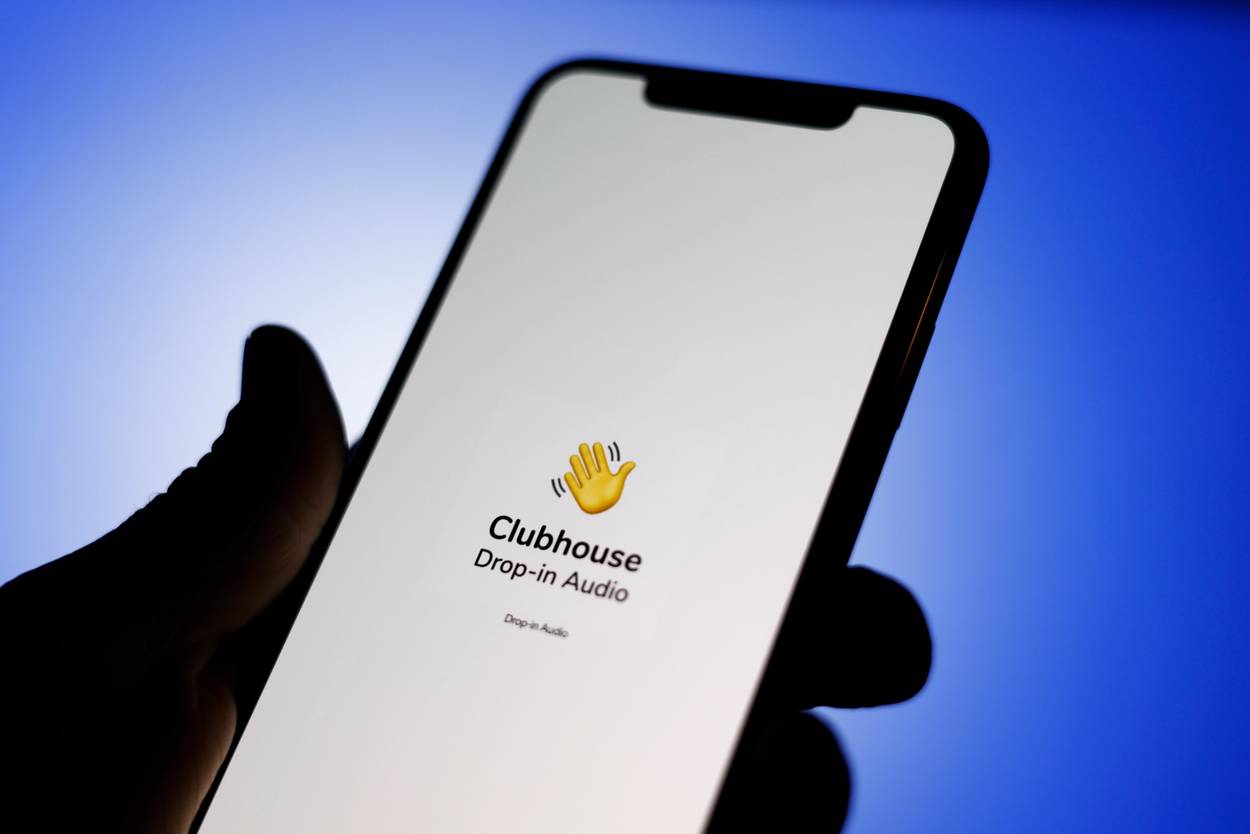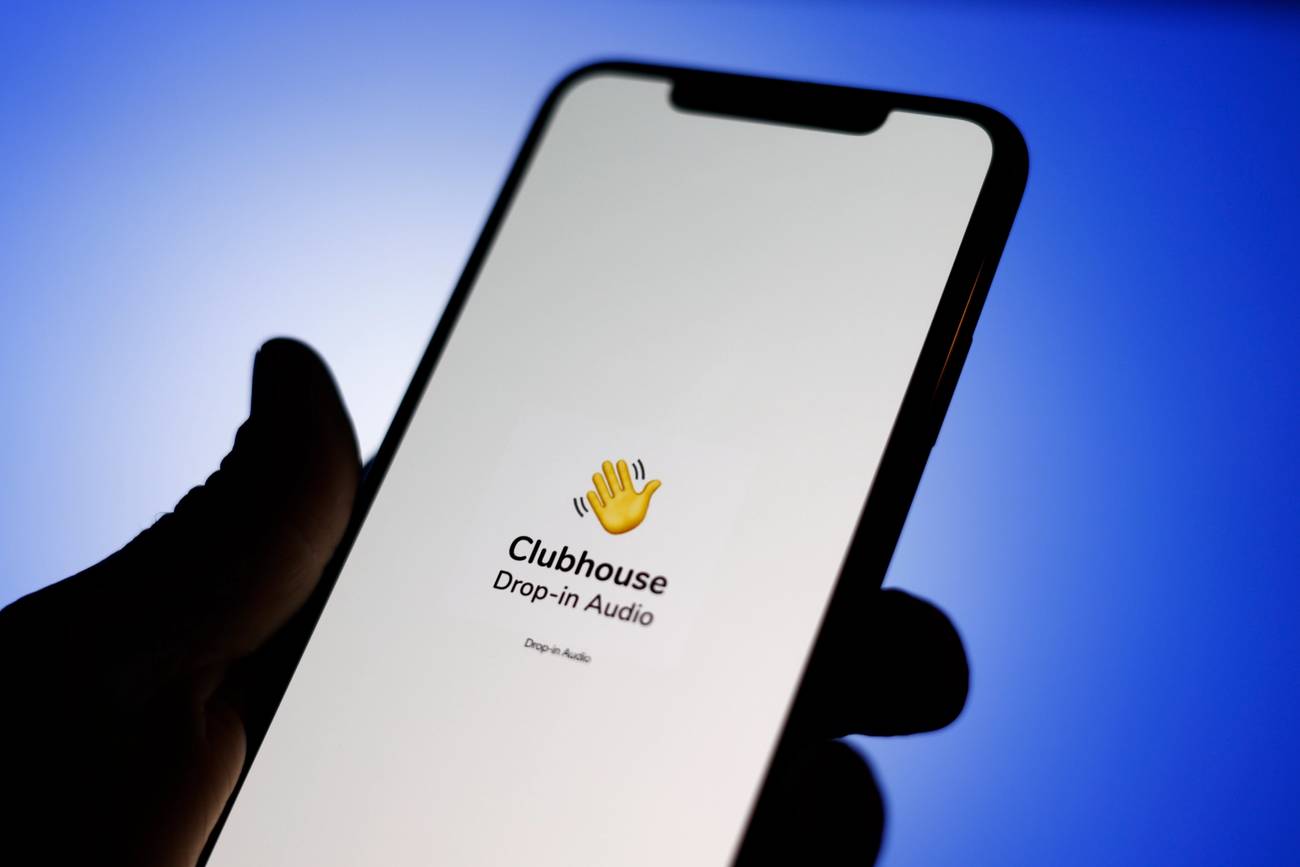Clubhouse for Antisemites
The ‘Clubhouse Rabbi’ explains how he got booted off the pioneering, invitation-only Apple (and now Android) social app, whose veneer of exclusivity can’t hide a growing hate speech problem




If you are unfamiliar with Clubhouse, the new audio social media app making both positive and negative headlines around the world, you’re forgiven. In January 2021, I too had never heard of Clubhouse, and while I had long used social media for my role as a community leader and a campus rabbi, I was certainly not associated with any particular app.
As the year began, with the country still under lockdown, I had the idea to invite guests from around the world onto my weekly radio program, the “Farbrengen.” I began alphabetically, first with Argentina, then Belgium, and so on. For my third week, I invited my friend Rabbi Yisroel Bernath, a rabbi at Concordia University in Montreal, internationally known as the “Love Rabbi.”
After recording our episode, Rabbi Bernath smiled at me and remarked that I needed to be on Clubhouse. I asked what it was and he explained it was a new social media app that was invitation only. As the pandemic raged, and I searched for new and innovative ways to reach my students, I decided to give it a shot.
The experience of Clubhouse is that of a virtual hallway. As you walk down that hallway, you can enter rooms, and in each one, a different discussion is taking place. Some of these conversations are serious, some more lighthearted. Some rooms are aimed at business, others at casual conversations or humor.
There are also many rooms discussing Judaism, most with a very campy vibe, and I immediately sensed a deep desire for authentic Jewish content. Several days after joining the app, I was invited to join two other rabbis and lead a room answering difficult Jewish questions. The response was phenomenal, with dozens of people taking part. The passion of the participants was so inspiring that later that night I hosted a similar room in which anyone could ask a rabbi any question. That room went on for over seven and a half hours. One Saturday night, I spoke to Jewish comedy legend Jeff Garlin about wrapping tefillin.
What was most inspiring, though, was the myriad of young voices—whether raised in Orthodox families or completely secular homes—who said that their connection to Judaism had grown exponentially since joining Clubhouse. Within weeks I was dubbed the “Clubhouse Rabbi,” and was leading discussions on Sephardic and Mizrachi history, laws of lashon hora, or evil speech, weekly discussion of Ethics of our Fathers, Talmud and the Kuzari, and daily talks about the Bible with Rashi and Maimonides.
But there are also darker rooms, many of them antisemitic, on Clubhouse. And as the app’s audience grew from 2 million to 10 million users in a month, its longstanding problem with antisemitic hate speech also blossomed. Some rooms began as discussions about Israel but quickly devolved into baseless blood libels, the berating of Jewish people in the room, and even personal threats. Other rooms, like those started by the Nation of Islam cult, began by defending Louis Farrakhan, the viciously antisemitic leader of the movement, and progressed to open Jew-hatred. One such room, co-led by actor LaKeith Stanfield, attracted thousands of participants and led to several breakout rooms in which scores of death threats were issued against Jews who were brave enough to speak up. (Stanfield later apologized.) Still other rooms began by calling for a second Holocaust, a third intifada, and other forms of violence against Jews. Shockingly, such rooms went on for hours without any response from the Clubhouse app.
Other rooms called for a second Holocaust, a third intifada, and other forms of violence against Jews without any response from the app.
As a Jewish educator and rabbi who could speak authoritatively on the historical roots and applications of Jew-hatred, I began to get pinged or invited to join such rooms by other Jews who wanted a defense of our community.
One afternoon, I was called into a room discussing Israel and her struggles against Hamas and other terrorist organizations. One person in the discussion suggested that if Israel ever had the upper hand militarily, they would kill all Arabs in the region. I gently pointed out that since the late 1960s, Israel has had—as policymakers call it—a qualitative military edge, but despite that advantage, Israel instead pursued peace with its Arab neighbors in the region. A pointed exchange, but a purely political one.
Then a young man who was known for frequent antisemitic outbursts joined the virtual stage, and not only condemned my view, but equated my acknowledgement of Israel’s military might with a call for genocide. Despite everyone present pointing out that this was not what I said, the young man went on a tirade against Jews in general and their innate desire for blood and vengeance.
That night, a room began, hosted by several anti-Israel voices on Clubhouse including the fellow I met earlier that day. The room suggested that all Jews sought to murder Arabs living in Israel or the territories, and then the topic turned to me personally. I was quickly identified as a problem because “no one is able to counter his views.” Two solutions were proposed. The first was to use the reporting feature that Clubhouse includes to flag problematic content to mass report my account, with the hopes of having me removed from Clubhouse. The second was to “dox” me personally. My home address, where I live with my wife and five children, was publicly announced in the room. While as the Chabad rabbi of the University of Kentucky and the Lexington area, my address is fairly easy to find by design, to hear it announced in this fashion along with calls for “someone to do something about him” was certainly jarring.
The campaign to mass report me bore fruit and Clubhouse restricted my ability to begin conversations for 24 hours. My rights were thankfully restored after an appeal, but nothing was done to moderate the violent threats being made against me or other members of the Jewish community.
In the aforementioned Nation of Islam room led by LaKeith Stanfield, I was pinged in on a Saturday night following hours and hours of conversation on the app over Shabbat when many Jews were not there to defend themselves. After laying out academically how The Secret Relationship, the nation of Islam’s hateful pseudo-history book, has long been debunked, I was immediately inundated with vicious attacks, including references to The Protocols of the Elders of Zion, Holocaust denial, and death threats in my inbox.
Another unfortunate aspect of such rooms are their breakout rooms that try to add more fuel to the fire, with the hope of attracting more attention to themselves—a practice that is commonly called clout chasing. Such rooms are particularly dangerous because those running them often build platforms for extremely prejudicial and bigoted comments. I was urged to join one such room, where I was shocked to hear not only wild antisemitic claims but also the racist slur that the African American community in the United States hates Jews. I quickly rose to the stage and refuted that claim, pointing out that historic leaders like Dr. King and Rep. John Lewis were prominent supporters of the Jewish people, as are contemporary Black leaders across the political spectrum like Richie Torres and Daniel Cameron. I then pointed out the danger of hosting such a room without a knowledgeable person calling out such false and dangerous comments—at which point I, along with the other voices defending the Jewish community, were thrown out of the room and prevented from speaking.
And it’s not just antisemitic rooms that are a problem on Clubhouse. If a Clubhouse user’s profile alerts people to their Jewish faith, they are often followed, attacked and harassed in random rooms devoted to unrelated subjects, like television, the weather, or sports. Clubhouse’s near total lack of moderators and transparent speech guidelines may keep the app’s costs down, but it is also creating a platform that rewards vile antisemitism and other forms of hateful “engagement” while turning identifiably Jewish users into targets.
This lack of content moderation or screening is also turning Clubhouse into a recruiting platform for hate groups. Recently, a new series of rooms created by the sometimes violent Black Hebrew Israelite cult denigrated Jews on the app, accusing them of stealing Jewish culture. These rooms start with 10 or 11 cult members talking about how all of history agrees with their insane claims, and then invite Jewish audience members to “defend” the Jewish community. Of course, anyone who rose to the stage would be hounded from all sides, yelled at, and finally removed from the stage and ridiculed.
When I launched a moderated response room to this assault—one not controlled by the cult—over 500 people sat listening for hours on end while BHI members joined the stage one by one and sought to bend either Jewish scripture or history to their ends, and were subsequently corrected. This room spawned three rooms like it in concurrent nights, where such hate was deconstructed, resulting in thousands being educated. In return, dozens of death threats were again sent to myself and other participants.
Unsatisfied by this result, the cultists then used the tool of mass reporting to get me kicked off the app once more. Last week, the “Clubhouse Rabbi” was again suspended, this time entirely. After a tremendous outcry from Jews on Twitter and Instagram, Clubhouse once again reversed course, this time after 36 hours, apologizing for the inconvenience and thanking me for the contribution of “Chabad on Clubhouse” to the community.
In response to all this, we pledged to increase our classes and enable more who want to take part to study Torah over Clubhouse. For now, while many of the Jewish organizations tasked with fighting antisemitism aren’t quite sure what to make of Clubhouse, we will continue to be there as a source of Torah, knowledge, and support for its users. Our voice will not be silenced.
Rabbi Shlomo Litvin is the co-director of Chabad in Lexington, Kentucky, oversees the Jewish Student Center at the University of Kentucky, and serves on the Kentucky Commission on Human Rights.